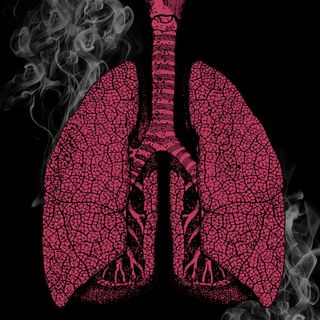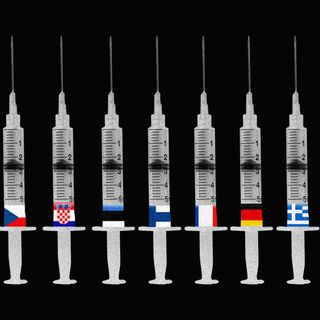A government-backed research in Japan using computer modelling found face shields to be quite ineffective at trapping respiratory aerosols involved in the spread of Covid19, leading the researchers to caution against wearing face shields as an alternative to face masks.
Led by Riken, a scientific research institute in Japan, the researchers relied on a simulation using Fugaku, the world’s fastest supercomputer, which combined air flow with the reproduction of tens of thousands of droplets of different sizes for the experiment. The results showed that almost 100% of airborne droplets of less than 5 micrometres escaped through the gap between the face and the face shield. About half of larger droplets, measuring upto 50 micrometres, also found their way into the air, but the shields were able to trap droplets larger than 50 micrometres, the research concluded. “Judging from the results of the simulation, unfortunately the effectiveness of face guards in preventing droplets from spreading from an infected person’s mouth is limited compared with masks,” Makoto Tsubokura, team leader at Riken’s Centre for Computational Science, told the Guardian.
Another study, published in Physics of Fluids earlier this month, also demonstrated the ineffectiveness of face shields. Here, the researchers had attempted to simulate coughing, by connecting a mannequin’s head to a fog machine, and then, using a pump to expel the vapor through the mannequin’s mouth. The results showed that although the shields did deflect droplets towards the ground following a cough, small droplets continued to remain suspended at the bottom of the shield, and then, floated around the sides, eventually spreading about 3 feet towards around the mannequin.
Related on The Swaddle:
Men Find Wearing Masks ‘Shameful, Not Cool and a Sign of Weakness’: U.S. Survey
“As students return to schools and universities, some have wondered if it is better to use face shields, as they are more comfortable and easier to wear for longer periods of time. But what if these shields are not as effective? You would be essentially putting everyone in a tight space with droplets accumulating over time, which could potentially lead to infections,” Siddhartha Verma, co-author of the earlier study, and assistant professor at Florida Atlantic University’s College of Engineering and Computer Science, warned.
In addition to being more comfortable, since face shields also have the advantage of allowing users to show facial expressions, people are more inclined to choose them over face masks. However, given that a consensus on their apparent lack of safety is beginning to emerge among experts, it certainly doesn’t seem wise to ditch face masks in favor of face shields.
Tsubokura believes choosing face shields over masks, would only be advisable for those who have been advised against wearing masks — such as small children, or those with underlying respiratory issues. In what seems to be an extension of the ‘something is better than nothing’ philosophy, he said that under these circumstances, individuals could wear face shields instead — but only outdoors, or in indoor settings that are properly ventilated.




